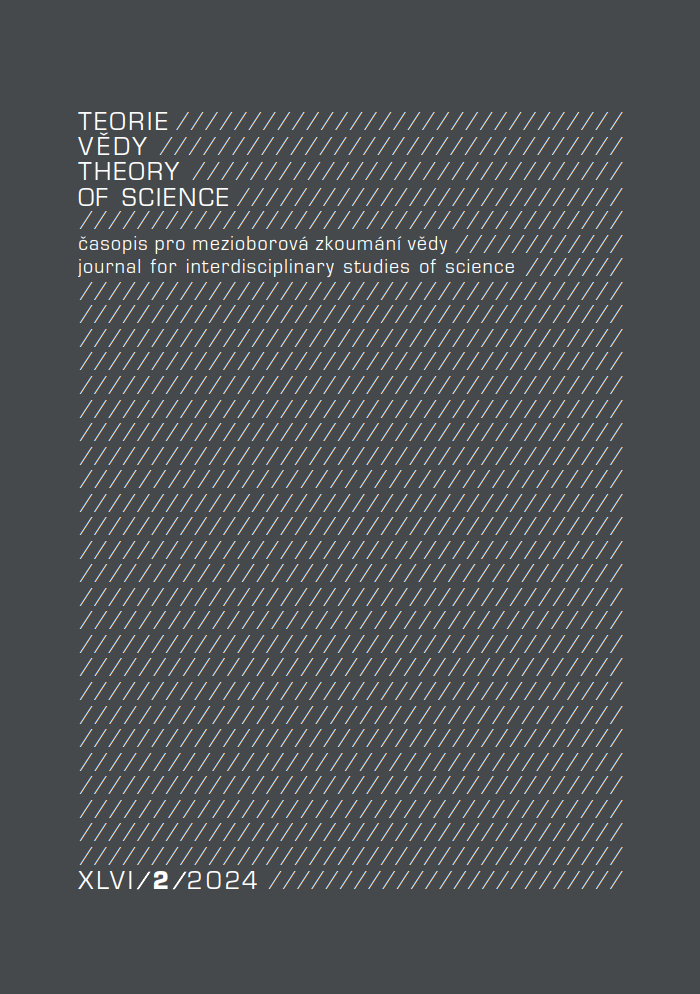Abstract
Historical video games are uniquely tied to the scientific practices of professional historians, archaeologists, and many other experts. However, since video games are an interactive medium and the most common-sensical view of history is that the past is fixed, it is clear that, at least from a representationalist point of view, there is some unresolved tension. The article explores this predicament and draws heavily from contemporary historical non-representationalism – a position that shifts focus from the idea of representing the real past to the close examination of historical discourse as a complex argumentative practice, relying on evidence and robust theoretical background. To complement the theoretical examination of the problem, the paper examines three examples from historical discourse (the Late Bronze Age collapse, cliodynamics, and Big History) and juxtaposes them against two examples of historical video games of a strategic genre that deal with related topics. It is argued that what makes video games historical is their complex relation to the ongoing historical discourse.
References
Burgess, Jacqueline, and Christian Jones. “Exploring Player Understandings of Historical Accuracy and Historical Authenticity in Video Games.” Games and Culture 17, no. 5 (2022): 816–35. https://doi.org/10.1177/15554120211061853
Chapman, Adam. “Is Sid Meier’s Civilization History?” Rethinking History 17, no. 3 (2013): 312–32. http://dx.doi.org/10.1080/13642529.2013.774719
Chapman, Adam. Digital Games as History. New York: Routledge, 2016. https://doi.org/10.4324/9781315732060
Christian, David. Living Water: Vodka and Russian Society on the Eve of Emancipation. Oxford: Clarendon Press, 1990. https://doi.org/10.1093/acprof:oso/9780198222866.001.0001
Christian, David. Maps of Time: An Introduction to Big History. Berkeley: University of California Press, 2004. https://doi.org/10.1525/9780520931923
Christian, David. “A Single Historical Continuum.” In History, Big History, & Metahistory, edited by David C. Krakauer, John Lewis Gaddis, and Kenneth Pomeranz, 1–27. Santa Fe: The Santa Fe Institute Press, 2017.
Cline, Eric H. 1177 B.C.: The Year Civilization Collapsed. Princeton, NJ: Princeton University Press, 2021. https://doi.org/10.1515/9780691208022
Creative Assembly Sofia. Total War: Pharaoh. Sega, 2023. Windows and macOS.
Dewulf, Fons, and Paul A. Roth. “Real True Facts: A Reply to Currie and Swaim.” Journal of the Philosophy of History 16, no. 2 (2022): 207–25. https://doi.org/10.1163/18722636-12341478
Domanska, Ewa. “A Conversation with Hayden White.” Rethinking History 12, no. 1 (2018): 3–21. https://doi.org/10.1080/13642520701838744
Elliott, Andrew B. R. “Charlemagne at the Battle of Gettysburg – Video Games and the Middle Age.” In Historia Ludens, edited by Alexander von Lünen, Katherine J. Lewis, Benjamin Litherland, and Pat Cullum, 170–85. New York: Routledge, 2020.
Firaxis Games. Sid Meier’s Civilization IV. 2K and Aspyr, 2005. Windows and macOS.
Førland, Tor Egil, and Branko Mitrovic, eds. The Poverty of Anti-realism. London: Lexington Books, 2023.
Gangl, Georg, and Ilkka Lähteenmäki. “The Futures of the Philosophy of History: An Introduction.” Journal of the Philosophy of History 17, no. 2 (2023): 177–94. https://doi.org/10.1163/18722636-12341496
Gelder, Ken. Adapting Bestsellers Fantasy, Franchise and the Afterlife of Storyworlds. Cambridge: Cambridge University Press, 2019. https://doi.org/10.1017/9781108589604
Goldstein, Leon J. Historical Knowing. Austin: University of Texas Press, 1975.
Goldstein, Leon J. “Against Historical Realism.” Philosophy and Phenomenological Research 40, no. 3 (1980): 426–29. https://doi.org/10.2307/2106407
Goldstein, Leon J. “Impediments to Epistemology in the Philosophy of History.” History and Theory 25, no. 4 (1986): 82–100. https://doi.org/10.2307/2505133
Hassemer, Simon Maria. “Does History Play the Role of Storyline? Historiographical Periodization as Theme in Video Game Series.” In Early Modernity and Video Games, edited by Tobias Winnerling and Florian Kerschbaumer, 64–75. Newcastle upon Tyne: Cambridge Scholars Publishing, 2014.
Ibn Khaldun. The Muqaddimah – An Introduction to History, translated by Franz Rosenthal. Princeton, NJ: Princeton University Press, 2015.
Kuukkanen, Jouni-Matti. “Historiographical Knowledge as Claiming Correctly.” In Philosophy of History: Twenty-First-Century Perspectives, edited by Jouni-Matti Kuukkanen, 44–66. London: Bloomsbury Academic, 2021. https://doi.org/10.5040/9781350111875.0008
Kuukkanen, Jouni-Matti. Postnarrativist Philosophy of Historiography. London: Palgrave Macmillan, 2015. https://doi.org/10.1057/9781137409874
Kuukkanen, Jouni-Matti. “Representationalism and Non-representationalism in Historiography.” Journal of the Philosophy of History 7, no. 3 (2013): 453–79. https://doi.org/10.1163/18722636-12341261
Rochat, Yannick. “A Quantitative Study of Historical Video Games (1981–2015).” In Historia Ludens, edited by Alexander von Lünen, Katherine J. Lewis, Benjamin Litherland, and Pat Cullum, 3–19. New York: Routledge, 2020.
Roth, Paul A. The Philosophical Structure of Historical Explanation. Evanston: Northwestern University Press, 2020.
Salvati Andrew J., and Bullinger, Jonathan M. “Selective Authenticity and the Playable Past.” In Playing with the Past, edited by Matthew Wilhelm Kapell and Andrew B. R. Elliott, 153–67. New York: Bloomsbury, 2013.
Tucker, Aviezer. Our Knowledge of the Past: A Philosophy of Historiography. Cambridge: Cambridge University Press, 2004. https://doi.org/10.1017/CBO9780511498381
Turchin, Peter. Historical Dynamics: Why States Rise and Fall. Princeton, NJ: Princeton University Press, 2003. https://doi.org/10.1515/9781400889310
Turchin, Peter. “Towards Cliodynamics.” In History, Big History, & Metahistory, edited by David C. Krakauer, John Lewis Gaddis, and Kenneth Pomeranz, 225–49. Santa Fe: The Santa Fe Institute Press, 2017.
Wainwright, A. Martin. Virtual History. London: Routledge, 2019. https://doi.org/10.4324/9781315157351
White, Hayden. Metahistory: The Historical Imagination in Nineteenth-century Europe. Baltimore: The John Hopkins University Press, 1973.
Zeleňák, Eugen. “Non-representationalism in Philosophy of History: A Case Study.” In Towards a Revival of Analytical Philosophy of History, edited by Krzysztof Brzechczyn, 116–29. Leiden: Brill Rodopi, 2018. https://doi.org/10.1163/9789004356900_009
Zeleňák, Eugen. História a relativizmus: Ako prekonať relativistický výklad historickej práce? Bratislava: Chronos, 2021.

This work is licensed under a Creative Commons Attribution 4.0 International License.
Copyright (c) 2024 David Černín


